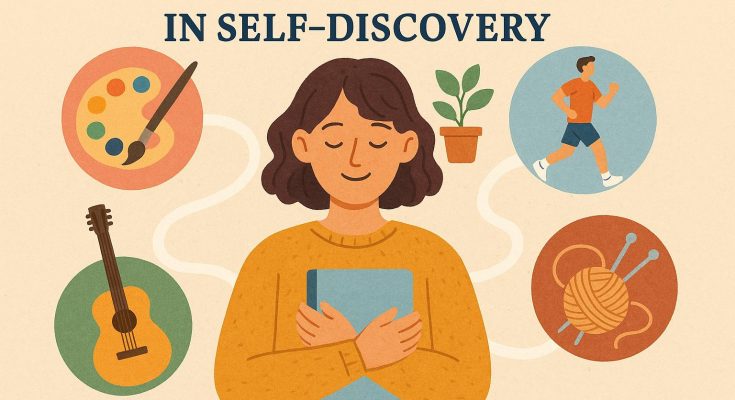The Importance of Hobbies in Self-Discovery
Hobbies play a crucial role in the process of self-discovery by allowing individuals to explore new interests and develop unique skills. Engaging in hobbies provides an opportunity to delve into activities that are both enjoyable and insightful, leading to a greater understanding of oneself. Through hobbies, people can embark on a journey of self-exploration and gain insight into their preferences, strengths, and areas for growth.
Exploration and Personal Growth
Engaging in hobbies encourages individuals to try new things, helping them to discover personal likes and dislikes. This exploration is a vital aspect of personal growth because it challenges individuals to step out of their comfort zones and try activities they might not be initially familiar with. For instance, someone who picks up hiking as a hobby may discover a newfound appreciation for nature and physical fitness. This self-exploration can often lead to a deeper understanding of what activities bring satisfaction and fulfillment. Personal growth is achieved as individuals challenge themselves through various tasks, learning to navigate new experiences and adapt to different situations.
Skill Development
Many hobbies require the acquisition of new skills. As individuals dedicate time to these pastimes, they often develop competencies that can transfer to other areas of life. This skill development is not only rewarding but also beneficial for enhancing one’s capabilities in various aspects of life. For example, learning a musical instrument necessitates patience and practice, qualities that are beneficial in numerous contexts. Similarly, photography might foster an eye for detail and creativity, which can be useful in both professional and personal settings. The process of acquiring and refining these skills can increase confidence and a sense of achievement, reinforcing the notion that hobbies are not only enjoyable but also essential for personal development.
Social Interaction and Networking
In addition to fostering personal growth, hobbies can also facilitate social interaction. Group activities or clubs offer opportunities to meet people with similar interests, strengthening social bonds. These connections can expand one’s social network and provide support systems, which are vital for both personal and professional growth. For instance, joining a book club allows individuals to engage in meaningful discussions while sharing diverse perspectives. Participating in a hobby group can be a fulfilling way to meet like-minded individuals. This networking aspect of hobbies can lead to lifelong friendships and professional collaborations, making hobbies a gateway to a broader social world.
Stress Relief and Emotional Well-being
Hobbies contribute to emotional well-being by providing a healthy outlet for stress relief. Engaging in enjoyable activities can help individuals unwind and disconnect from the pressures of daily life. This disengagement from stressors is crucial for mental health, as it promotes relaxation and emotional balance. The rhythmic nature of knitting, for example, can induce a meditative state, reducing stress levels while producing a tangible end product that offers a sense of accomplishment. This stress relief mechanism inherent in hobbies can lead to improved mental health and a more balanced lifestyle.
Mindfulness and Focus
Many hobbies, such as playing chess or engaging in a detailed painting session, require a significant degree of focus, which can foster mindfulness. Being absorbed in an activity allows individuals to be present in the moment, reducing anxiety and promoting relaxation. This mindfulness can have a positive impact on everyday life, as individuals learn to apply focused attention to various challenges. Mindfulness practices such as painting, gardening, or yoga can enhance concentration and promote a serene state of mind, helping individuals to manage stress and improve their overall quality of life.
Creative Expression
Hobbies often provide an avenue for creative expression, allowing individuals to explore their artistic side. This form of expression is essential for developing self-identity and articulating emotions. For example, someone who delves into writing as a hobby might find a unique voice and perspective on issues that matter to them. Likewise, painting or playing an instrument offers a way to communicate feelings that might be difficult to express verbally. Creative activities can also stimulate the brain and foster innovation, encouraging individuals to think outside the box and approach problems from different angles.
Conclusion
In summary, hobbies are integral to self-discovery as they promote exploration, skill development, social interaction, and emotional well-being. They offer opportunities for individuals to engage with their interests and talents, facilitating a deeper understanding of their identities and preferences. By investing time in hobbies, individuals gain insights into their own identities, leading to a more fulfilling and self-aware life. The continued practice of hobbies not only enriches personal lives but also contributes positively to one’s social and professional spheres, encouraging a well-rounded and balanced existence.





